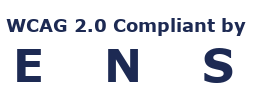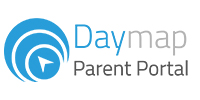Intervention Classes
Learning Support
Identified IESP funded students in years 8 – 10 are provided a line of Learning Support throughout the year in place of HASS. Depending on students’ needs, the program is delivered to either a small class (up to ten students), a small group or one to one, and is facilitated by an Inclusive Education teacher and a Curriculum and Engagement Support SSO. Staff implement a trauma informed practice and are experienced with supporting students with disability and complex behaviour in a mainstream high school setting. The program builds students’ social, academic and behavioural skills with a particular focus on effective communication, emotional regulation, interoception, Literacy and Numeracy. It also provides students the opportunity to access academic support outside of the classroom with other students with similar needs and to receive support to build their skills to access the curriculum in class without feeling identified.
Learner Engagement Support (LES) for IESP funded students
To support IESP students to overcome the barriers of disability and complex behaviour, when students fail to adhere to our school values or exhibit behaviour that requires a suspension, the Inclusive Education team administers an LES day. This involves providing onsite targeted intervention in The Hub with one to one support provided by a Curriculum and Engagement Support officer. Staff unpack identified behaviour with students and support them in completing small, tailored exercises that take into account the student’s disability or functional needs, the behaviour they exhibited and the incident leading up to the event. These activities are based on The Zones of Regulation, 5 is Against the Law and CHS Learner Engagement policies. Once the behavioural and social elements of students’ behaviour is unpacked, they receive one to one academic support. Staff track students’ due dates, ensure work is scaffolded so it is accessible and work with teachers to implement approved adjustments to suit student’s needs. Students who engage in low level behaviour that warrants a single day of suspension will have one day of LES in the Hub rather than have a day away from school or attend scheduled classes. Students who are suspended for more significant issues will receive the traditional number of suspension days, reduced by one, which will be replaced with LES directly prior to reengagement in school but directly after their reengagement meeting. During LES students:
- Unpack behaviour and explicitly teach appropriate alternate approaches to seeking support, resolving conflict and regulating emotions
- Decrease the total time students are away from school
- Provide students the opportunity to access one to one intensive academic support and scaffolding
- Provide a better opportunity to administer meaningful Restorative Practices by supporting students’ emotional, social and behavioural understanding and growth
English Support:
- Students experience a year 8 English Curriculum, but it is heavily differentiated and scaffolded
- Students are explicitly taught how to pull information from text & understand the purpose of different texts and how they have been constructed using different features/techniques
- Taught how to use varied sentence structures to improve quality of their writing and how to edit to improve accuracy of their ideas
- Students have an initial screening assessment undertaken by Speech Pathologist, which gives us information how to best personalise their learning relating to reading, spelling & writing
Reading Intervention Program:
- These students require explicit phonics instruction to help them understand all of the sounds of the English language and the various ways they are represented
- Activities build phonological awareness and the distinctive units of sound within words
- Students are explicitly taught spelling rules and the conventions of the English language
Scaffolding Numeracy in the Middle Years Program (SNMYP)
The Scaffolding Numeracy in the Middle Years Program, developed by RMIT University is run by Mathematics teachers to improve students’ mathematical skills and knowledge through the development of multiplicative thinking.
The completion of a valid assessment tool, enables teachers to accurately identify a students’ location on the Learning and Assessment Framework for Multiplicative Thinking and provide structured intervention in targeted ways, to support students to shift to a higher level of multiplicative thinking. This is achieved by consolidating students’ understanding at their current level and introducing and developing concepts and ideas at the next level.







